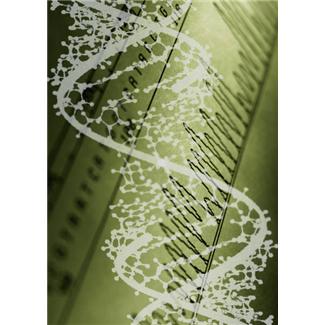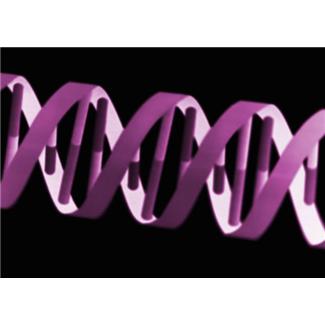Our Path To Happiness: Do Our Genes Know Before We Do?
OUR PATH TO HAPPINESS: DO OUR GENES KNOW BEFORE WE DO? (ISSUE 92)
By Diane Gold
 Whatever our path to happiness, it is what drives us, floats our boat and encourages us to behave the way we do. Sometimes, it can be judged as superficial ego stroking; other times, it is seen as deep, genuine and benevolent. Whatever it is for us, we might be interested to know that our genes, and not just the social networks, can tell the difference.
Whatever our path to happiness, it is what drives us, floats our boat and encourages us to behave the way we do. Sometimes, it can be judged as superficial ego stroking; other times, it is seen as deep, genuine and benevolent. Whatever it is for us, we might be interested to know that our genes, and not just the social networks, can tell the difference.
Happiness
Barbara L. Fredrickson of University of North Carolina, Chapel Hill et al and Steven W. Cole of UCLA, School of Medicine et al authored a July, 2013, study (published in the Proceedings of the National Academy Of Sciences) on how genetic expression is effected by the kind of happiness we seek. There is hedonic happiness, where we park ourselves at the local upscale restaurant’s bar for the purpose of being seen and getting photographed for the high society pages; and there is eudaemonic happiness, where we devote ourselves to a societal goal or creative act to beautify the world.
Yes, it’s surprising that our biology is watching and reacting; there is more and more proof.
THE STUDY
 The study included 80 subjects who took a verbal survey, had their blood drawn and data compiled. It turns out that the study clearly indicated different gene expression profiles for those people whose happiness had to do with a goal or higher purpose and those whose happiness was connected with superficial pleasures and instant, short-lived gratification. According to an article in The New York Times on the study findings, Gretchen Reynolds wrote,
The study included 80 subjects who took a verbal survey, had their blood drawn and data compiled. It turns out that the study clearly indicated different gene expression profiles for those people whose happiness had to do with a goal or higher purpose and those whose happiness was connected with superficial pleasures and instant, short-lived gratification. According to an article in The New York Times on the study findings, Gretchen Reynolds wrote,
“Gene expression is the complex process by which genes direct the production of proteins. These proteins jump-start other processes, which in the case of white blood cells, control much of the body’s immune response.”
She’s referring to the fact that the blood testing of these 80 healthy individuals showed profiles with relatively high levels of blood markers that are known to cause inflammatory response for those whose happiness was related to the hedonistic approach. Their antibody production seemed to be less than in those whose goals were more moralistic. The smaller part of the group whose happiness was more service-based had gene expression that raised antibody production and reduced inflammatory expression.
Steven W. Cole, co-author of the study and professor of medicine in California stated,
“Our genes can tell the difference,”
between a life of purpose and self-gratification, unrelated to the greater good. Our Genes
WHY
It has been suggested that our genes are evolutionarily programmed to do the ultimate good to keep ourselves and humanity safe. The lead author, Steven W. Cole is quoted by Christopher Bergland in Psychology Today, when referring to why the genes express differently, based on what different people feel,
“likely evolved to help the immune system counter the changing patterns of microbial threat that were ancestrally associated with changing socio-environmental conditions; these threats included bacterial infection from wounds caused by social conflict and an increased risk of viral infection associated with social contact. But in contemporary society and our very different environment, chronic activation by social or symbolic threats can promote inflammation and cause cardiovascular, neuro-degenerative and other diseases and can impair resistance to viral infections.”
It’s pretty amazing at how our genes have protected us and continue to protect us from internal and social threats. Pretty fascinating!
CHANGING
This article is not suggesting we make changes, that is, change our habits to those that include giving, sharing, helping, doing service. It is, however, informing and reinforcing the idea that if we don’t, our bodies may become weaker.
 It would serve all of us if we used the concepts in this study wisely. Whether we decided to run a store to give free sandwiches to the poor or we decide to work on our own physical fitness so that we can be a better and healthier family member; we would ultimately achieve that deeper happiness because our genes would tell the right proteins to fire so we would live longer and more healthily.
It would serve all of us if we used the concepts in this study wisely. Whether we decided to run a store to give free sandwiches to the poor or we decide to work on our own physical fitness so that we can be a better and healthier family member; we would ultimately achieve that deeper happiness because our genes would tell the right proteins to fire so we would live longer and more healthily.
In order to feel the deep or the shallow happiness, and no one here is judging which is better, we must be alive and well. Therefore, we are recommending that it is worth thinking twice from now on about how to act in the name of happiness.
It’s one thing to go from activity to activity, always looking for the next great kick. It is another to build a foundational difference in the world or in ourselves. The bottom line is that now we can attach a scientific reason to taking care of ourselves and others.
ACTION STEPS
NOTE
The following are a series of simple questions to ponder. Do not judge yourself. Only consider truthfully. If it pleases you, number a page from 1 to __, and write down your considerations and the date.
1) Consider which is better for you, your favorite quick fix or a project where you are making a difference.
2) Consider what your favorite quick fix is, and, on a scale of 1 to 10, how healthy is it for you, 10 being very healthy.
3) Consider what your favorite “making a difference project is, and, on a scale of 1 to 10, how healthy is it for you.
4) Consider how many people’s lives you could impact with your project.
5) Consider which is better for you, your favorite quick fix or a project where you are making a difference.
6) Do the activity you have considered as most pleasing to you with extra gusto.
CONCLUSION
It is fascinating that our genes which control whether things do or do not become, in many cases, respond to tension, release and, apparently, innate tendencies. Because of this and since we are speaking about it now, it is a great time to take a self-look.

____________________________________________________________________
FEEDBACK
Please leave a comment and LIKE.
DIANE GOLD, AUTHOR
Diane Gold, Founder of Warriors of Weight, Turning Habits Into Health, is a mentor in tai chi, kung fu and meditation, a music, fitness and stress expert, dedicated mom, studying plant-based nutrition and habit change.
She has always been fascinated by genetics. She says,
“Happiness comes from within. The instantly gratifying activities we do or actions we take count for fun but can easily go away. We each choose how to live, and whatever that is, it is right for us at the time we choose it. We can be confident in that!
“Looking at the ways others obtain happiness will not trick our genes. Obviously, they feel us closely. Therefore, considering inner balance is a worthwhile effort.”







